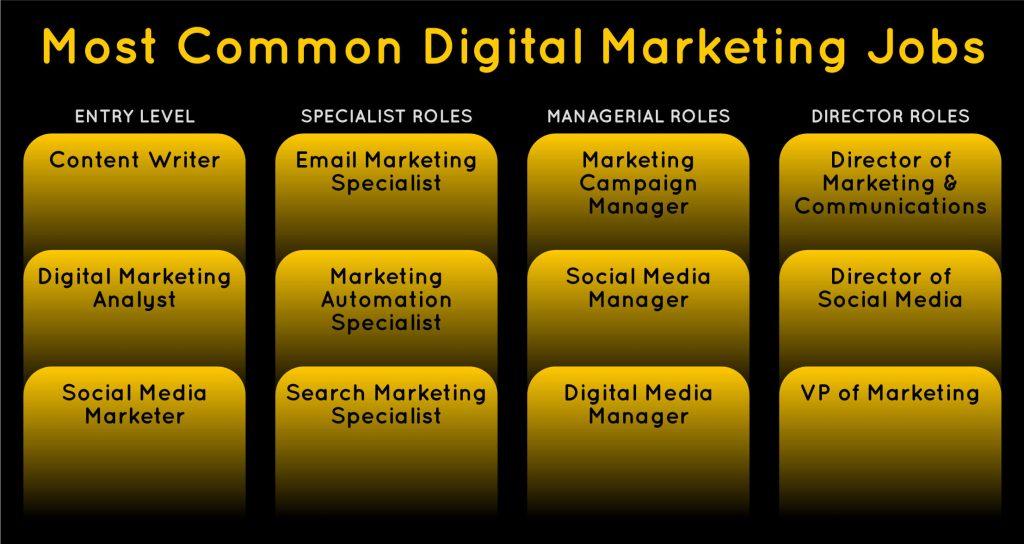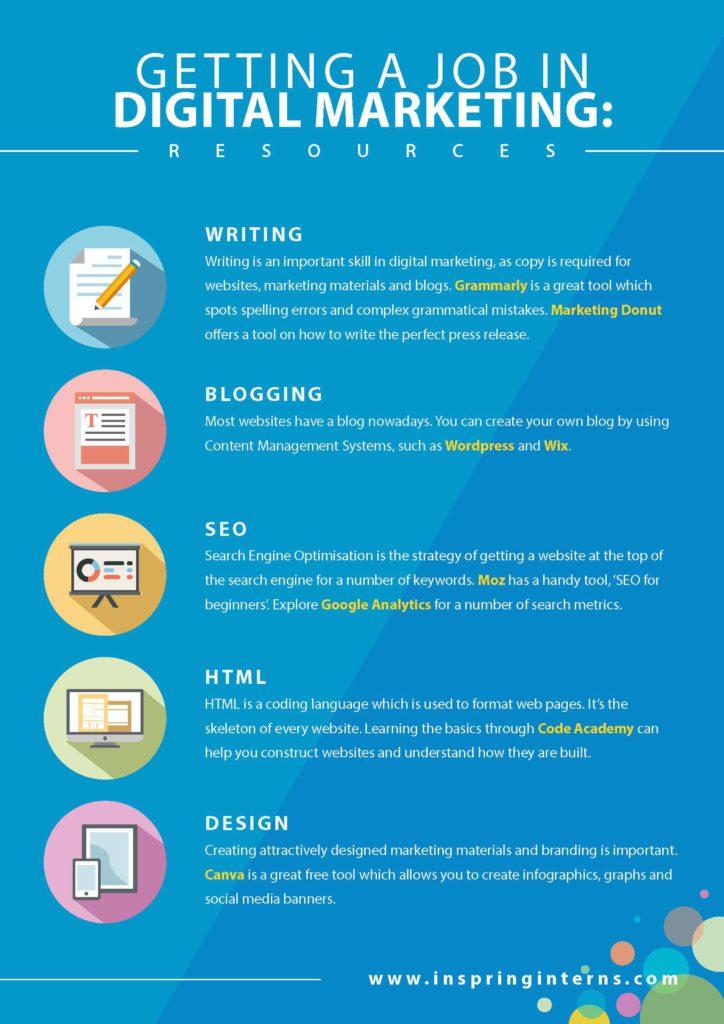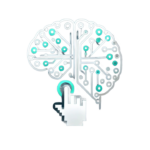Are you eager to dive into the dynamic world of digital marketing? With its rapidly evolving landscape and diverse array of career opportunities, it can be both thrilling and challenging to find the right role that aligns with your skills and passions.In the video titled “,” Ed, the Chief Marketing Officer at Career Foundry, takes us on an insightful journey through the various career pathways within digital marketing. Drawing from over a decade of experience in the field, Ed offers invaluable advice on identifying your ideal position – whether technical or non-technical – within this expansive domain. From performance marketing managers to SEO specialists, he breaks down the structure of modern marketing teams, highlighting the importance of metrics, experimentation, and collaboration. Join us as we explore the key takeaways from this engaging discussion, equipping you with the knowledge to forge your path in digital marketing for 2024 and beyond.
Table of Contents
- Identifying the right Digital Marketing Role for you
- Understanding the Technical and Non-Technical landscape
- Key Skills and Qualifications for Success in Digital Marketing
- Strategic Recommendations for Building Your Digital Marketing Career
- Q&A
- To conclude
Identifying the Right Digital Marketing Role for You

Choosing the right position in the vast landscape of digital marketing requires understanding the diverse roles and aligning them with your personal strengths and interests. If you are drawn to numbers and analysis, a position within the technical marketing sphere might be ideal. This includes roles such as Performance Marketing Manager, SEO Manager, or Data Analyst. These positions focus heavily on metrics and experimentation, demanding a data-driven mindset to optimize marketing efforts and ensure that campaigns are successful. Such as, Performance Marketing Managers often handle significant budgets, running paid advertisements across platforms like google and Facebook, while SEO Managers work to enhance website visibility and performance in search engines.
Conversely, if you possess a flair for creativity and storytelling, non-technical marketing roles could be your calling. This area encompasses positions such as Content Marketing Manager, Brand Strategist, or Social Media Manager. These roles tend to revolve around crafting engaging narratives and fostering connections with audiences. Actually, you might find yourself developing compelling content strategies or managing social media campaigns that captivate and convert potential customers. Understanding where your passions lie—whether in the analytical world of technical marketing or the creative realm of non-technical marketing—will help steer your career path in the right direction.
Understanding the Technical and Non-Technical Landscape

in the expansive realm of digital marketing, understanding the distinction between technical and non-technical roles is crucial.Technical marketing positions focus on data,analytics,and optimization,often requiring a strong mathematical or analytical background. Key roles in this sphere include:
- Performance Marketing Managers: Also known as PPC managers, they oversee advertising campaigns across platforms like Google and social networks, managing significant budgets.
- SEO Managers: They specialize in search engine optimization to enhance website visibility and traffic.
- CRO Managers: Focused on conversion rate optimization, they work to increase the percentage of visitors who convert into customers.
- Data analysts: These professionals analyze data trends to inform marketing strategies and decisions.
Conversely, non-technical roles emphasize creativity and strategy, catering to those with a passion for storytelling and relationship building. These positions may include:
- Content Marketing Managers: They are responsible for creating and curating engaging content to drive audience engagement.
- Social Media Managers: These individuals manage an institution’s presence on social platforms, crafting brand narratives and engaging with audiences.
- Brand Managers: Focused on developing and maintaining a brand’s image and message in the market.
- Email Marketing Specialists: They create targeted email campaigns to nurture leads and encourage conversion.
Key Skills and Qualifications for Success in Digital marketing

To carve a successful path in the realm of digital marketing, candidates must cultivate a blend of both technical and creative skills.Proficiency in data analysis is paramount, as digital marketing hinges on understanding user behavior and campaign performance metrics. A strong grasp of SEO (Search Engine Optimization) techniques is essential for increasing organic visibility, while familiarity with PPC (Pay-Per-Click) advertising allows professionals to drive targeted traffic effectively. Marketers should also navigate platforms such as Google ads, Facebook Ads, and analytics tools like Google Analytics effortlessly. Moreover, content creation skills help in crafting compelling narratives that resonate with audiences and support brand objectives.
Equally vital are soft skills that facilitate collaboration and innovation within diverse teams. Interaction skills, both writen and verbal, are crucial for articulating strategies and engaging with stakeholders. Additionally, possessing a problem-solving mindset can lead to innovative solutions for challenges in the fast-evolving digital landscape. Here’s a summary of these core skills and qualifications:
| Skills | Description |
|---|---|
| Data Analysis | Understanding user behavior and measuring campaign success. |
| SEO | Optimizing web content for higher search engine rankings. |
| PPC Management | Handling paid advertising budgets and strategies. |
| Content Creation | creating engaging and relevant content across platforms. |
| Communication | Effectively sharing ideas and strategies with teams. |
| Problem-solving | innovative approaches to overcoming digital marketing challenges. |
Strategic recommendations for Building Your Digital Marketing Career
To successfully navigate a career in digital marketing, it’s essential to identify your unique strengths and interests. Start by exploring the various roles available in the field, which can generally be categorized into technical and non-technical areas. This understanding will help you align your skills with the right position, whether you gravitate towards performance marketing, SEO, content creation, or data analysis. Take advantage of resources such as online courses and webinars to deepen your knowledge in your chosen area. Networking with industry professionals can also provide invaluable insights into what different roles entail and how you can position yourself effectively within the market.
Once you have identified your targeted career path, focus on building a diverse portfolio that showcases your expertise. This can include projects, case studies, and even personal blog posts that illustrate your understanding of digital marketing strategies. Additionally,consider obtaining relevant certifications that can enhance your resume and validate your skills. Joining professional organizations and participating in digital marketing forums can create opportunities for mentorship and collaboration, allowing you to expand your professional network. Remember, the digital marketing landscape is dynamic, so staying adaptable and continuously learning will be key to advancing your career in this exciting field.
Q&A
– Q&A
Q1: What is the focus of the video “”?
A1: The video explores the vast and dynamic field of digital marketing, specifically highlighting various career roles within the industry. Ed, the Chief Marketing Officer at Career Foundry, shares his insights from over 12 years of experience in different digital marketing positions, aiming to help viewers determine which role might be the best fit for their skills and interests.
Q2: How does Ed categorize the roles within digital marketing?
A2: Ed categorizes digital marketing roles into two primary segments: technical and non-technical marketing. He explains that while there are clear distinctions between these categories,many roles often overlap,blurring the lines between technical expertise and non-technical skills.
Q3: Can you provide examples of roles within the technical marketing category?
A3: Certainly! Within the technical marketing category, Ed references several roles, including:
- Performance Marketing Managers (or PPC Managers) who oversee paid advertising campaigns on platforms like Google and social media.
- SEO Managers who focus on optimizing website content to improve search engine rankings.
- CRO Managers who concentrate on conversion rate optimization to increase site effectiveness.
- Data analysts who interpret marketing metrics to drive informed decisions.
Q4: What qualifications or backgrounds are recommended for someone looking to enter digital marketing?
A4: While Ed does not specify exact qualifications,he emphasizes the importance of having a background in digital marketing or relevant training,such as that offered by Career Foundry. Your choice of role may depend largely on your individual interests, passions, and existing skill sets.
Q5: What advice does ed give to those unsure about which digital marketing role to pursue?
A5: Ed advises viewers to reflect on their personal interests and strengths. He acknowledges that the digital marketing field is diverse, and finding the right role often requires self-exploration and alignment between one’s career aspirations and the specific functions of different marketing roles.
Q6: How can someone stay updated on trends and opportunities in digital marketing?
A6: Ed recommends actively engaging with industry resources such as webinars,online courses,and updates from digital marketing organizations. networking with professionals in the field and participating in digital marketing communities can also provide valuable insights into emerging trends and job opportunities.
Q7: what is the key takeaway from the video regarding digital marketing careers?
A7: The key takeaway from the video is that digital marketing offers a plethora of roles tailored to various skills and interests. by understanding the different categories and functions within marketing teams, individuals can better navigate their career paths, aligning their aspirations with the diverse opportunities available in the ever-evolving digital landscape.
To Conclude
As we conclude our exploration of digital marketing careers in 2024, it’s clear that this dynamic and ever-evolving field offers a world of opportunities, each more intriguing than the last. Whether you’re drawn to the analytical world of performance marketing or the creative nuances of content creation, the potential pathways are numerous and diverse.
Ed’s insights into the structure of modern marketing teams provide a helpful framework for navigating your own career choices. By understanding the distinction between technical and non-technical roles, you can better assess where your skills and passions align. Remember, the best digital marketing job isn’t one-size-fits-all; it’s about finding a role that resonates with you personally.
As you contemplate your next steps, consider delving deeper into the specifics of each role discussed in the video. Reflect on your experiences, interests, and aspirations, and let those guide you toward the right fit. Embrace the exploration of this vibrant industry and consider how you can contribute to and grow within the digital marketing landscape.
Thank you for joining us today. We hope you found this guide enlightening and that it inspires you to embark on an exciting digital marketing journey in 2024! Whatever path you choose, may it be fulfilling and rewarding. Until next time, happy marketing!



